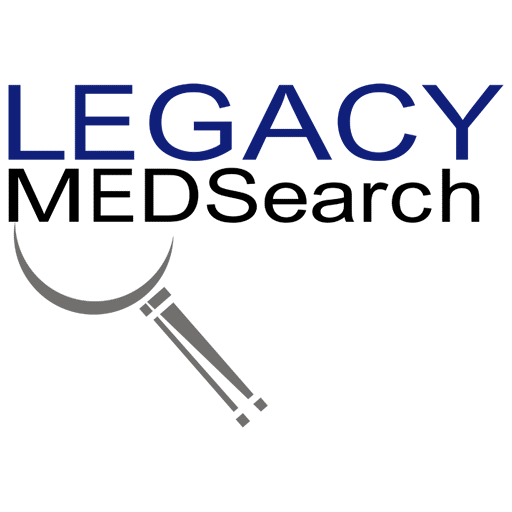Medical device and MedTech insights, news, tips and more
GE Healthcare Receives FDA Clearance of First Artificial Intelligence Algorithms Embedded On-Device to Prioritize Critical Chest X-ray Review
September 12, 2019

GE Healthcare today announced the Food and Drug Administration’s 510(k) clearance of Critical Care Suite, an industry-first collection of artificial intelligence (AI) algorithms embedded on a mobile X-ray device. Built in collaboration with UC San Francisco (UCSF), using GE Healthcare’s Edison platform, the AI algorithms help to reduce the turn-around time it can take for radiologists to review a suspected pneumothorax, a type of collapsed lung.
“X-ray – the world’s oldest form of medical imaging – just got a whole lot smarter, and soon, the rest of our offerings will too,” says Kieran Murphy, President & CEO, GE Healthcare. “GE Healthcare is leading the way in the creation of AI applications for diagnostic imaging and taking what was once a promise and turning it into a reality. By integrating AI into every aspect of care, we will ultimately improve patient outcomes, reduce waste and inefficiencies, and eliminate costly errors. Critical Care Suite is just the beginning.”
A prioritized “STAT” X-ray can sit waiting for up to eight hours for a radiologist’s review1. However, when a patient is scanned on a device with Critical Care Suite, the system automatically analyzes the images by simultaneously searching for a pneumothorax. If a pneumothorax is suspected, an alert – along with the original chest X-ray – is sent directly to the radiologist for review via picture archiving and communication systems (PACS). The technologist also receives a subsequent on-device notification2 to give awareness of the prioritized cases. Quality-focused AI algorithms simultaneously analyze and flag protocol and field of view errors as well as auto rotate the images on-device. Critical Care Suite and the quality algorithms were developed using GE Healthcare’s Edison platform – which helps deploy AI algorithms quickly and securely – and deployed on the company’s Optima XR240amx system.
“Clinicians are always looking for clinically proven methods to increase outcomes and improve the patient experience,” says Dr. Rachael Callcut, Associate Professor of Surgery at UCSF, a surgeon at UCSF Health and Director of Data Science for the Center for Digital Health Innovation, who partnered in the development of Critical Care Suite. “When a patient X-ray is taken, the minutes and hours it takes to process and interpret the image can impact the outcome in either direction. AI gives us an opportunity to speed up diagnosis, and change the way we care for patients, which could ultimately save lives and improve outcomes.”
Additionally, embedding Critical Care Suite on-device offers several benefits to radiologists and technologists. For critical findings, GE Healthcare’s algorithms are a fast and reliable way to ensure AI results are generated within seconds of image acquisition, without any dependency on connectivity or transfer speeds to produce the AI results. These results are then sent to the radiologist at the same time that the device sends the original diagnostic image, ensuring no additional processing delay. Also, automatically running quality checks on-device integrates them into the technologist’s standard workflow and enables technologist actions – such as rejections or reprocessing – to occur at the patient’s bedside and before the images are sent to PACS.
“Currently, 62 percent of exams are marked ‘STAT’ or for urgent reading1, but they aren’t all critical. This creates a delay in turnaround for truly critical patients, which can be a serious issue,” adds Jie Xue, President & CEO, X-ray, GE Healthcare. “Not only does Critical Care Suite flag images with a suspected pneumothorax with impressive accuracy3 and enable radiologists to prioritize those cases immediately, but it also makes AI accessible. Our embedded AI algorithms offer hospitals an opportunity to try AI without making investments into additional IT infrastructure, security assessments or cybersecurity precautions for routing images offsite.”
GE Healthcare’s Edison offering comprises applications and smart devices built using the Edison platform. The platform uses an extensive catalog of healthcare-specific developer services to enable both GE developers and select strategic partners to design, develop, manage, secure and distribute advanced applications, services and AI algorithms quickly. Edison integrates and assimilates data from multiple sources, applying analytics and AI to not only transform data, but provide actionable insights that can be deployed on medical devices, via the cloud or at the edge of the device.
Additional partners in the development of Critical Care Suite include St. Luke’s University Health Network, Humber River Hospital, and CARING – Mahajan Imaging – India.
See Full Press Release: GE Healthcare Receives FDA Clearance of First Artificial Intelligence Algorithms Embedded On-Device to Prioritize Critical Chest X-ray Review | Business Wire
Written by: GE Healthcare

Legacy MedSearch has more than 30 years of combined experience recruiting in the medical device industry. We pride ourselves on our professionalism and ability to communicate quickly and honestly with all parties in the hiring process. Our clients include both blue-chip companies and innovative startups within the MedTech space. Over the past 10 years, we have built one of the strongest networks of device professionals ranging from sales, marketing, research & , quality & regulatory, project management, field service, and clinical affairs.
We offer a variety of different solutions for hiring managers depending on the scope and scale of each individual search. We craft a personalized solution for each client and position with a focus on attracting the best possible talent in the shortest possible time frame.
Are you hiring?
Contact us to discuss partnering with Legacy MedSearch on your position.

